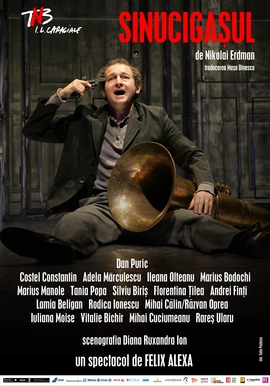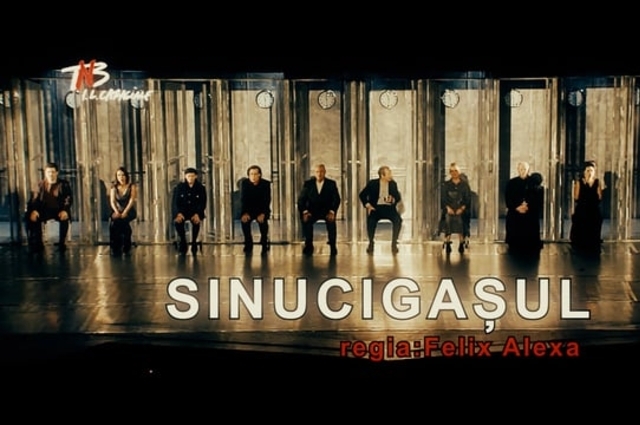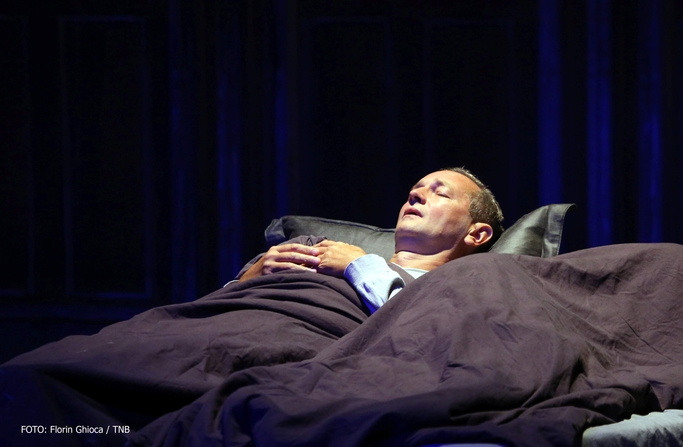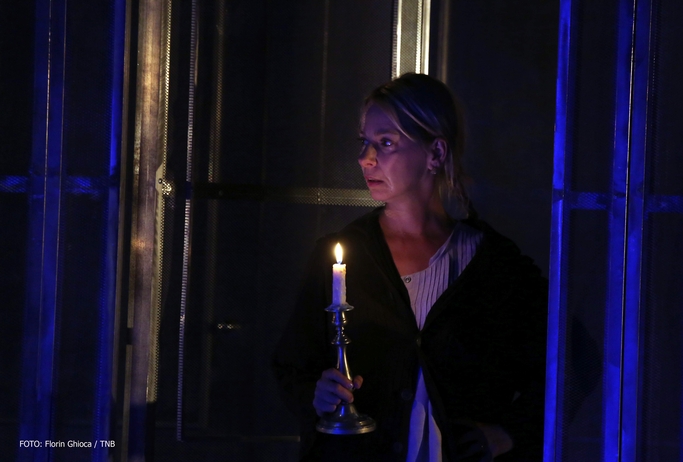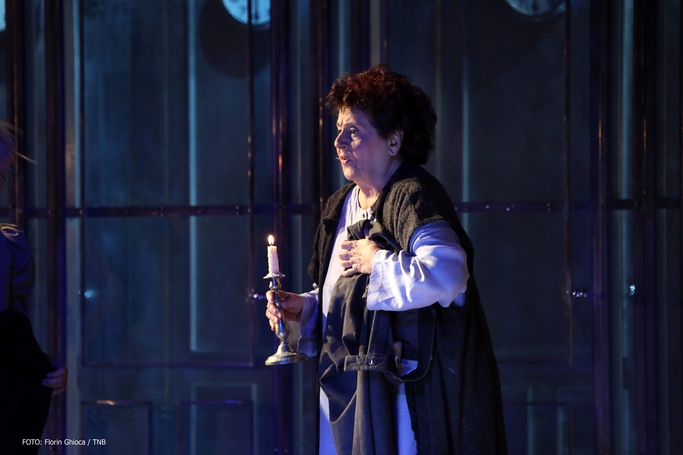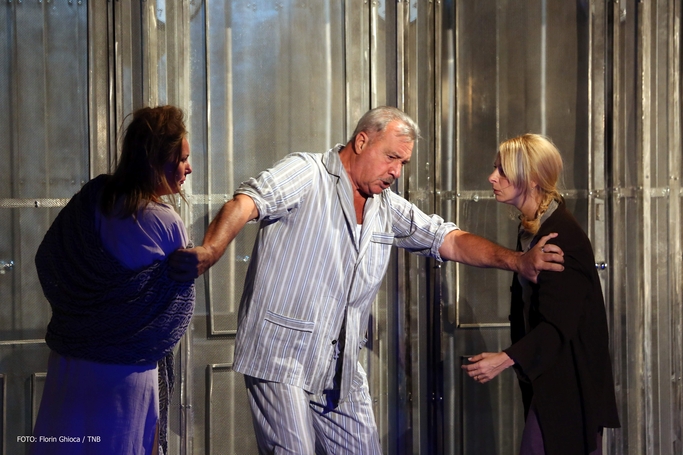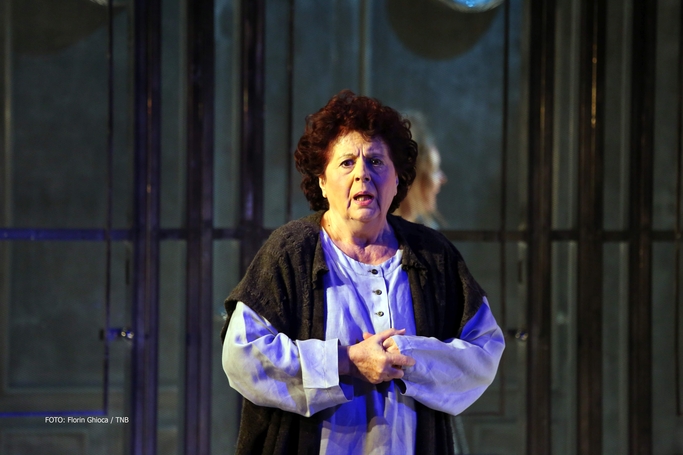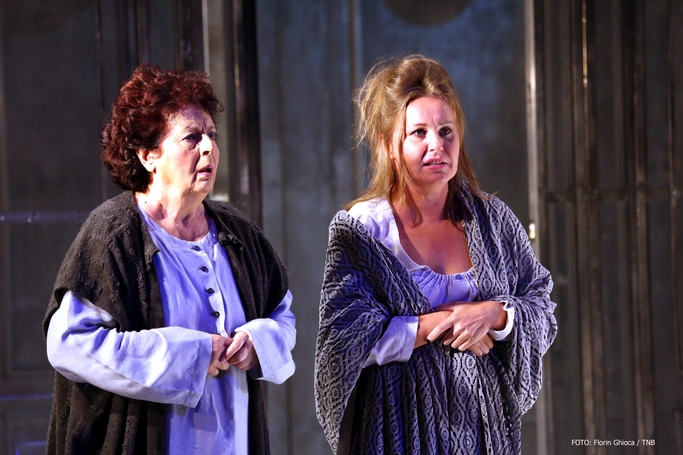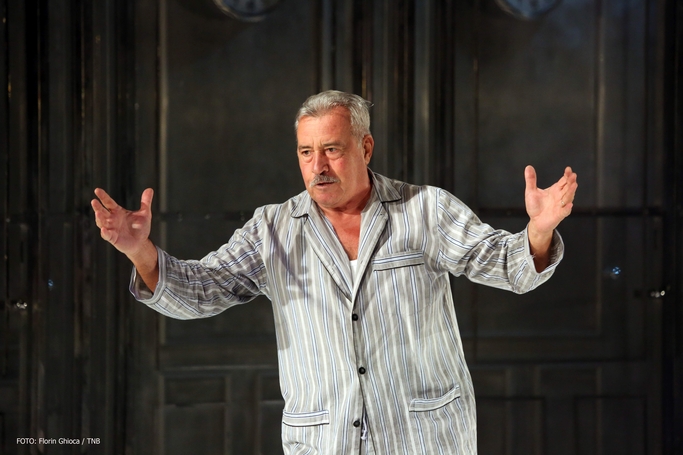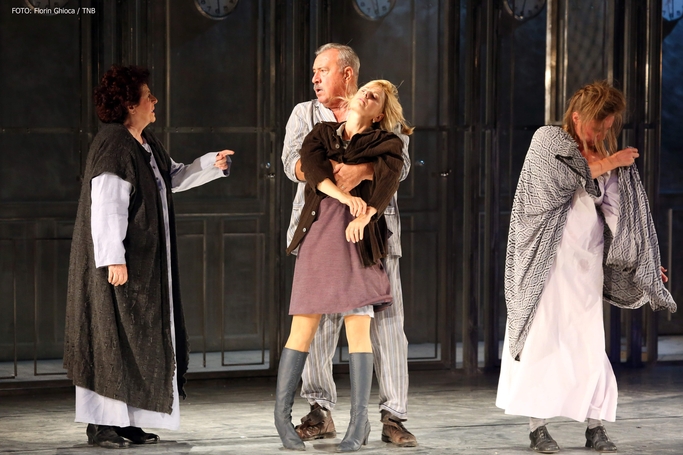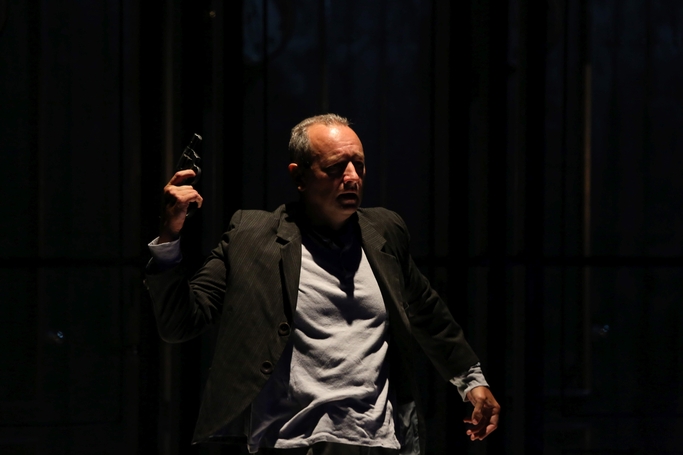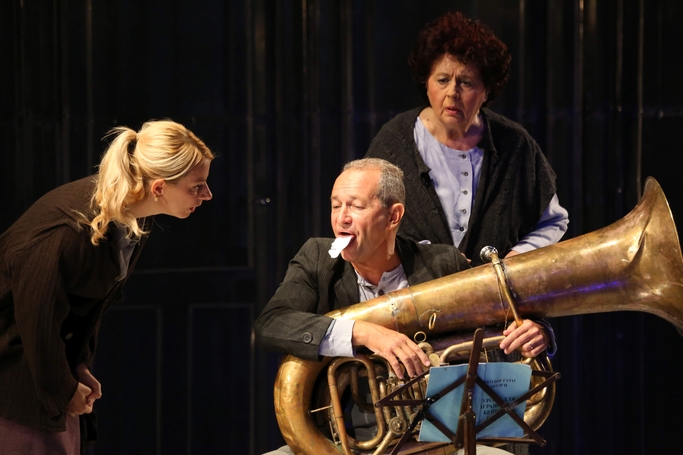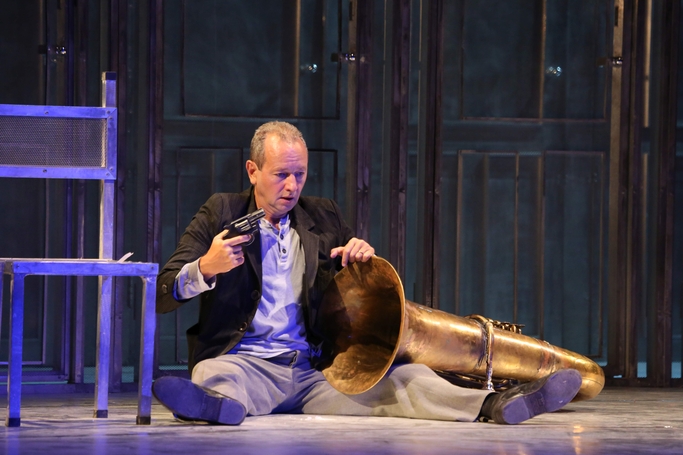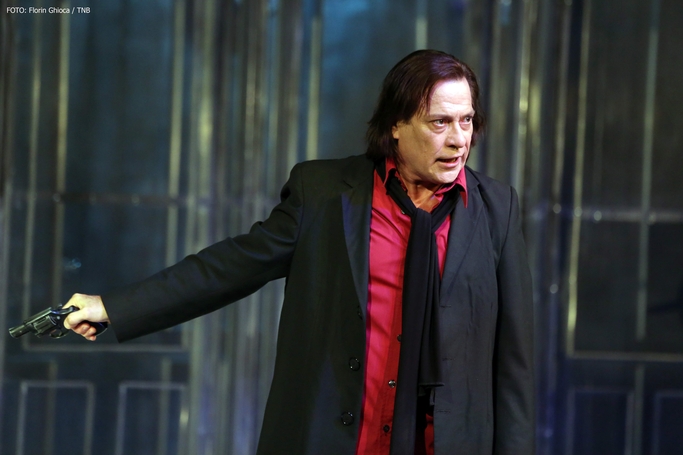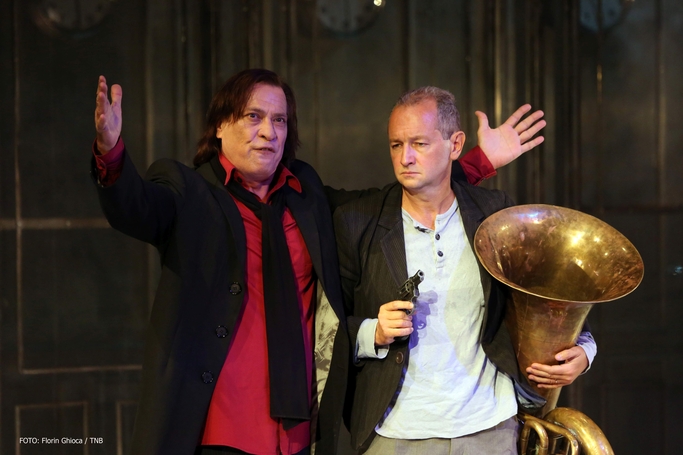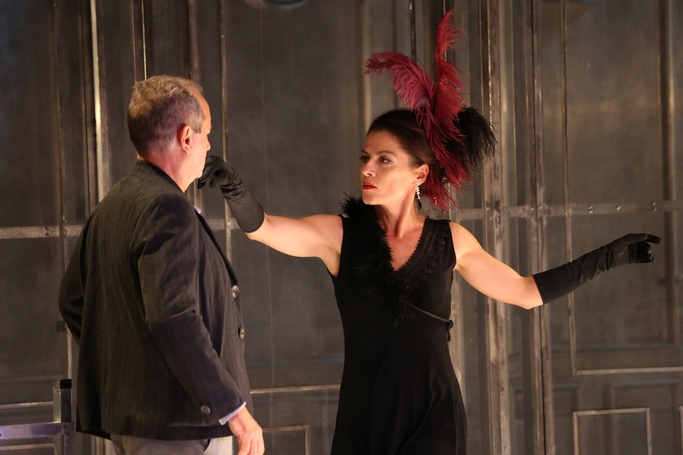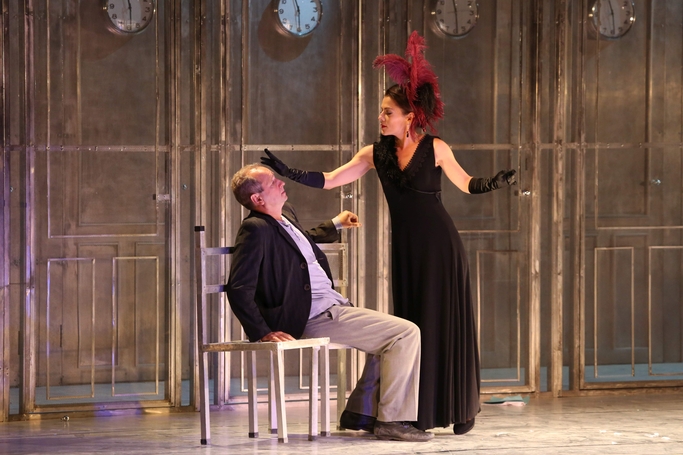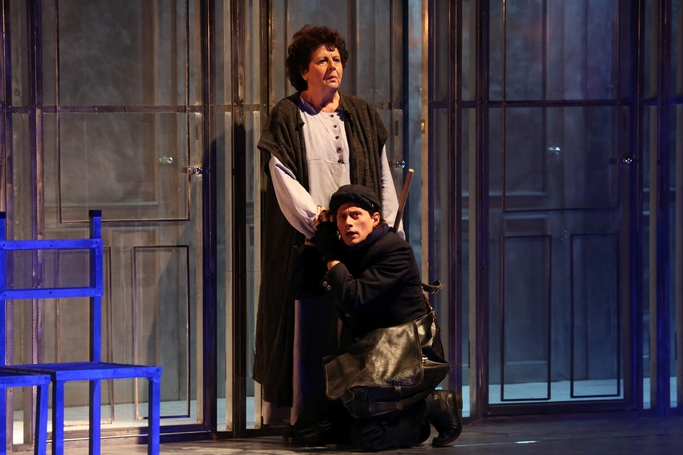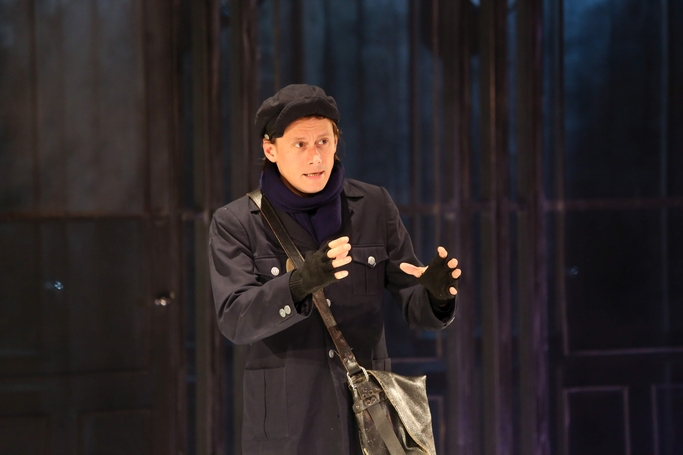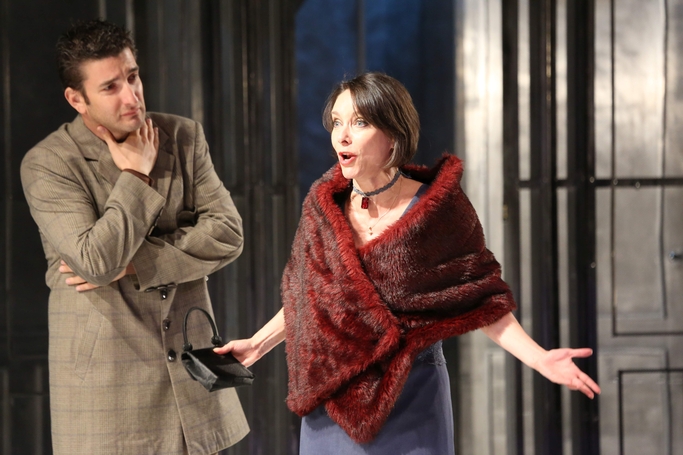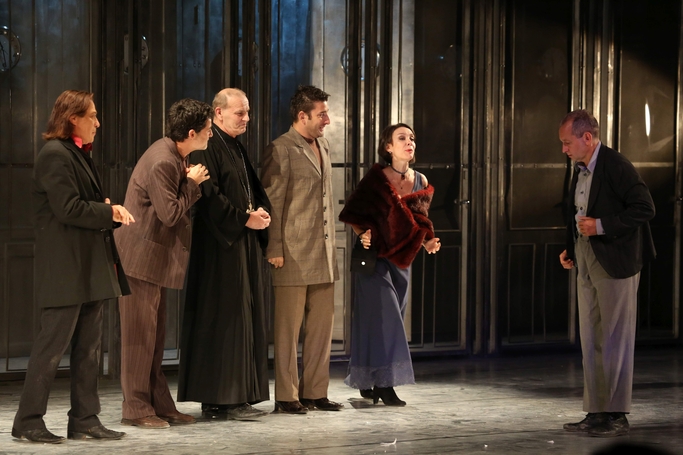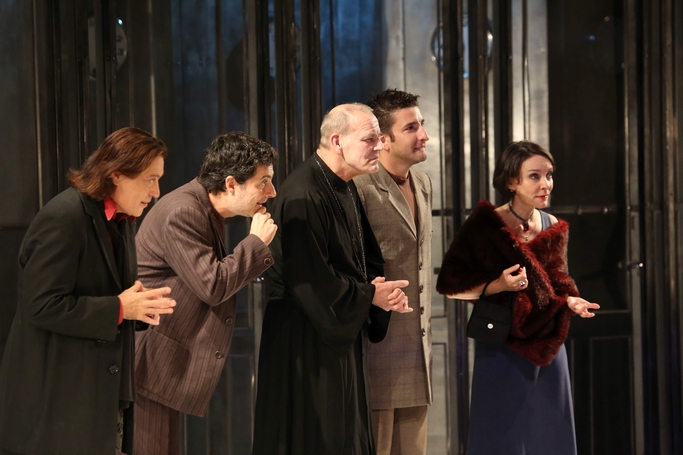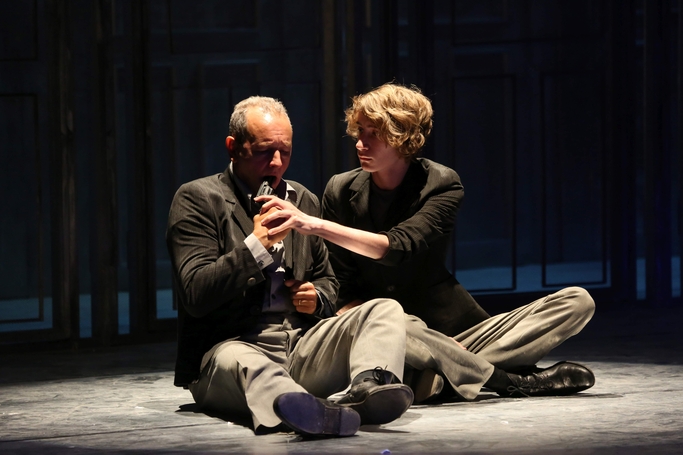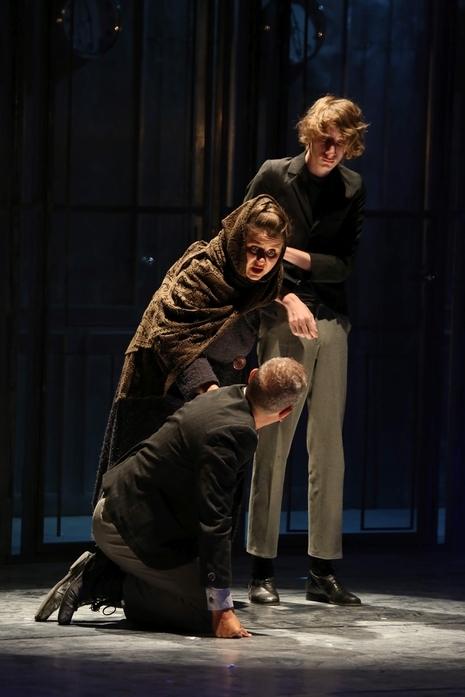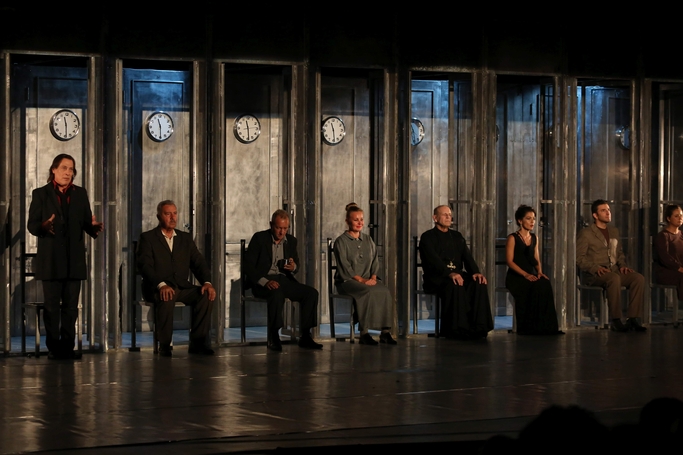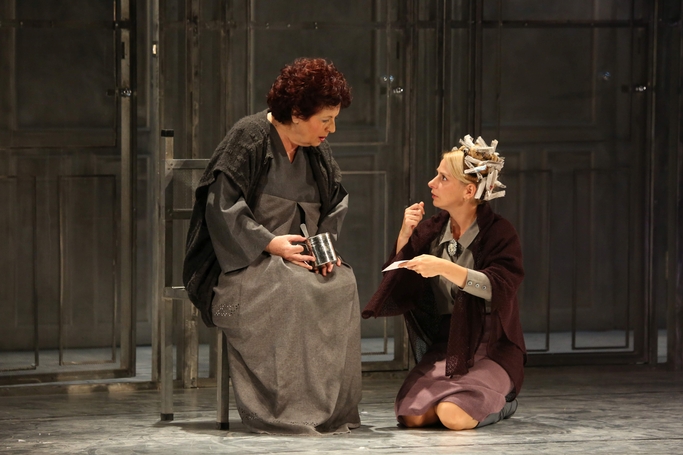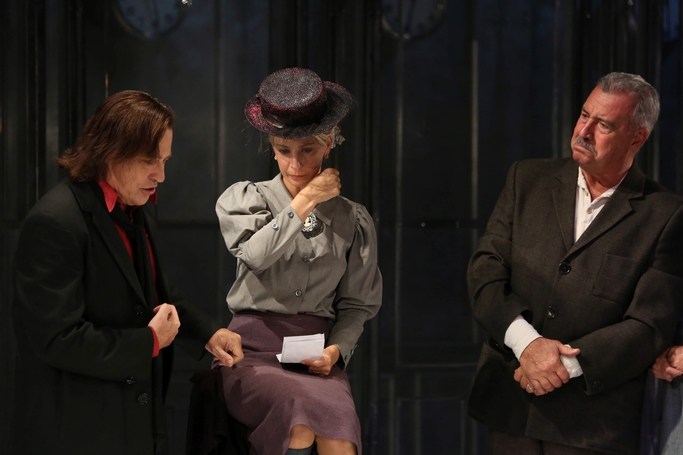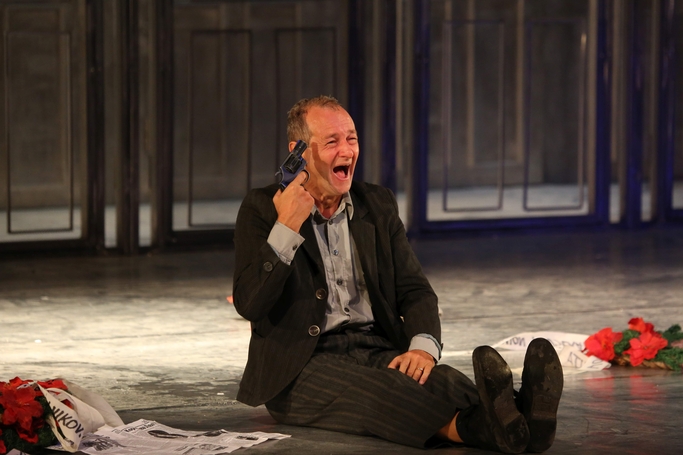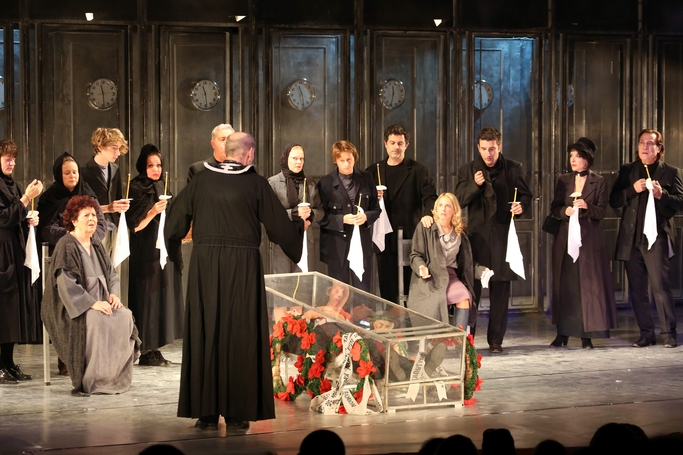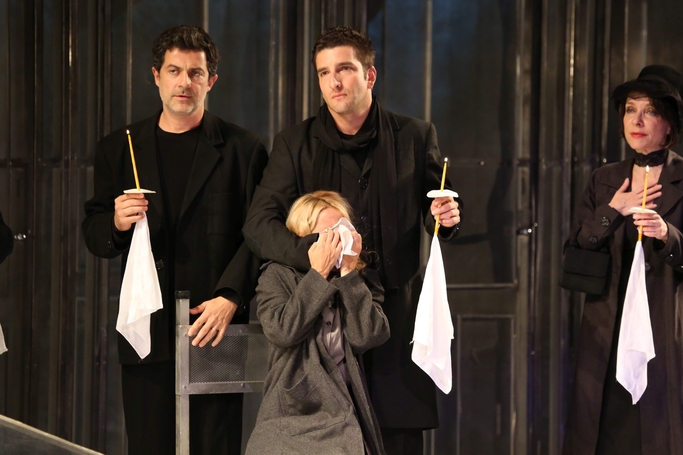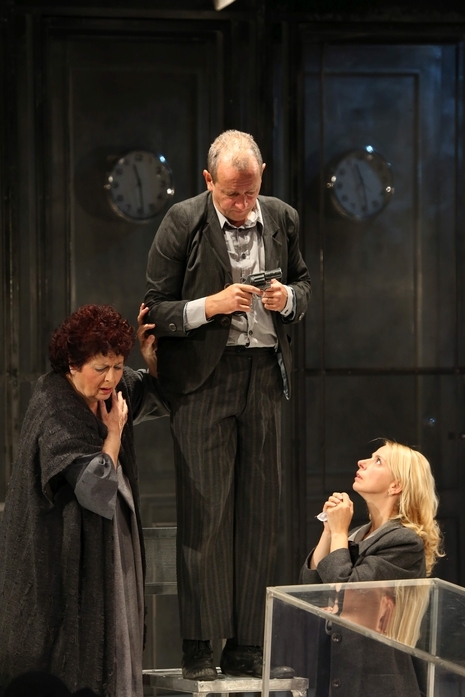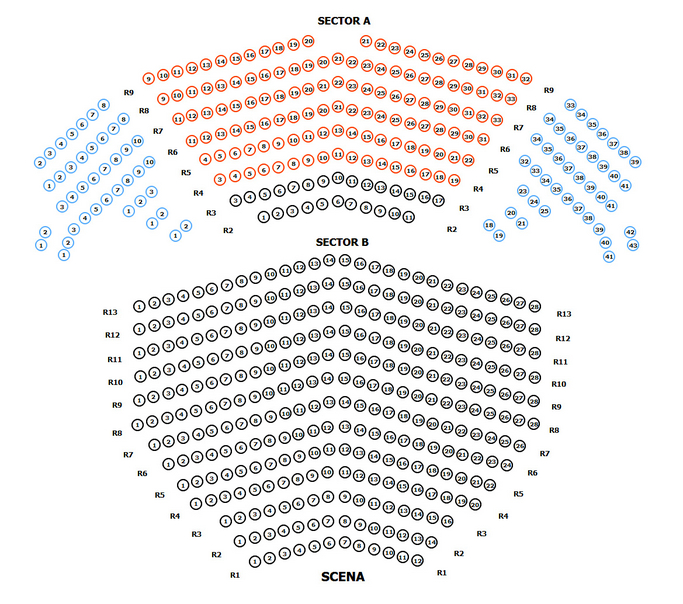Seasons Archive
The Suicide
by Nikolai Erdman
The Suicide
by Nikolai Erdman
Premiere: 23.05.2009
Last performance: 17.11.2019
Duration: 2 h 15 min / Pause: No
60 lei
50 lei
20 lei (reducere pentru elevi, studenți și pensionari)
Comedy
A bitter comedy that many directors such as Meyerhold and Stanislavski wanted to stage, but which Stalin himself forbid. The consequence? The author, a genius writer, was deported to Siberia and condemned to remain anonymous. After his death, this play gave the playwright the international celebrity. The Suicide is nowadays performed all over the world, re-launching a dramatic question: does life make sense?
The play is a tragicomic indictment to ferocious selfishness, a farce in which life is measly, and death is speculated for the benefit of one's own interest.A show of shocking and painful timeliness about the crisis of a man on the waves of society's crisis.A play of mad courage written in totalitarianism, a desperate cry for earning the right to whisper.
About the author:
Nikolai Robertovici Erdman, Russian playwright and scriptwriter, was born in Moscow on November 16th, 1900, and not in 1902, as practically all dictionaries and encyclopaedias state. His plays (TheMandate and The Suicide), unfortunately little known to us, are considered masterpieces of the genre and connect Gogol's satirical theatre to the theatre of the absurd after World War II.
As a poet, he is part of the Imagist group, an artistic current initiated by Serghei Esenin. He signs sketches, vaudevilles, and parodies that are played on theatre stages in Moscow.
In 1924, he entrusted the Mandate, his first play to the famous director Vsevolod Meyerhold. The premiere in Moscow was a triumph and the show was performed for more than 350 times in Meyerhold's theater, but also in other major cities in the Soviet Union, Germany and Japan.
In 1928 he writes The Suicide, a play with a turbulent artistic trajectory. Meyerhold also wants to enact this text, but his attempts are impacting against the categorical refusal of the authorities. Neither the Vahtangov Theatre, led by another famous director, Konstantin Stanislavski, shall be able to stage the show. Desperate, Stanislavski sends a letter to Stalin in which he compares Erdmanto Gogol and describes Gorky's enthusiasm for this play. But here is Stalin's answer:
Dear Konstantin Sergheevich,
I do not hold a good opinion about The Suicide. My closest comrades consider this play a bit empty and harmful. Attached documents will provide you with information about REPERTKOM's opinion and arguments. The Repertkom report does not seem far from the truth. However, I do not object to the theatre making an experiment and showing the product of your work. It is not excluded that the theatre shall reach its goal. The propaganda-culture section of our party's Central Committee (Comrade Stetsky) will help you with this issue. You will be supervised by comrades who are good at artistic matters. I am a dilettante in this area. Greetings, I. Stalin.
As a last chance by the authorities of the theatre, a representation takes place in front of an official delegation led by Lazar Kaganovici. Stalin was expected to arrive himself, but he did not appear. After the viewing, the rehearsals were interrupted and Erdman was deported to Siberia for three years.
He shall get permission to return to Moscow only at the end of the Second World War. Silently, Nikolai Erdman managed to survive, but he did not write theatre plays anymore. However, he had a sustained literary activity until the end of his days in 1970.
Translated by Simona Nichiteanu
Partner: ![]()
| Semion Semionovici Podsekalnikov: | Dan Puric | Aleksandr Petrovici Kalabuşkin: | Costel Constantin |
| Serafima Ilinicina: | Adela Mărculescu | Maria Lukianovna : | Ileana Olteanu |
| Aristarh Dominikovici Grand-Scoubique: | Marius Bodochi | Egoruşka: | Marius Manole |
| Margarita Ivanovna Peresvetova: | Tania Popa | Viktor Viktorovici: | Silviu Biriş |
| Kleopatra Maksimovna: | Florentina Ţilea | The Priest Elpidi: | Andrei Finţi |
| Raisa Filippovna: | Lamia Beligan | Zinca, the woman with the child: | Rodica Ionescu |
| Nichifor Arsentievici Pugaciov: |
Mihai Călin Răzvan Oprea |
The Seamstress: | Iuliana Moise |
| The Waiter, The Boy: |
Vitalie Bichir Mihai Cuciumeanu |
The Child: | Rareș Ularu |
Exceptional. It is for the second time that I can repeat this superlative can repeat during this season in Bucharest [...] The history of this play is, in fact, the terrible and tragic history of the Russian intelligentsia and the people who had the misfortune to cross it. It is admirable that Felix Alexa intuited, in the smallest detail, the depth of this text, which transcends time and does not anchor in that time, was not covered by symbols, but on the contrary came to the essence. The black comedy of The Suicide, where the roars of laughter do not stop until the end, when you freeze your soul, is the pearl of Felix Alexa's directorial work. A show that honours the stage of the Bucharest National Theatre.
Irina Budeanu, AZI Newspaper: Director Felix Alexa
In an extraordinarily inspired stage design (Diana Ruxandra Ion), Felix Alexa builds a touching and striking performance with a perfect Dan Puric, impeccably sustained by the entire body of actors of the National [ .] The text seems to be much more topical nowadays. About 20 years after the fall of communism, with a natural detachment we look at things differently, we value ourselves differently.
"The Suicide" is a show condemned to success. Performed by a mature director, master his own means and with a well-defined aesthetic program. A simple story that conquers naturally, the mixture of tragic and comic. A story in which anyone can find themselves.
Razvana Nita, Port.ro: Death Dialectic
A valuable, seductive show, where you laugh heartily, applaud for a long time, which we recommend.
Ludmila Patlanjoglu, Day: Puric Laughs at Death
The Suicide is, through the talent of its author, a brilliant philosophical and political play, stirring slogans that at the time of writing were not allowed in the country of the Soviets. The merit of the show is to deepen its strong messages about man and state, completely eliminating the risk of dating. "
Doina Papp, Cultura Bucharest: Faultless Suicide
Nikolai Erdman’s play, The Suicide, has, as well as her author - a Russian writer hunted by censorship, jailed and sentenced to years of exile in Siberia - a fascinating story. (...) Fortunately, the show has a big advantage, casting in the lead role an actor with a comic genius, Dan Puric, and enjoys the classical refinement and taste of the director, who draws memorable pictures in association with the stage designer with whom he has been working for years, Diana Ruxandra Ion.
Cristina Modreanu, ArtAct magazines: Dan Puric - The Effigy of Human Suffering
Dan Puric subtly undergoes the same stages through which his character passes.
Gabriela Hurezean, Q Magazine: Theatre - When Everything Pushes You towards Death ...
The director seeks, and finds, a simple but profound stage solution and, as is the text, with metaphysical insertions. He knows how to introduce the spectator to the subtlety of the 1928 play - because it is "strangely topical." The main character, through Dan Puric's play, touches the sensitivity of the audience and it vibrates.
Maria Sarbu, Jurnalul National: The Suicide or Why Puric Lives
